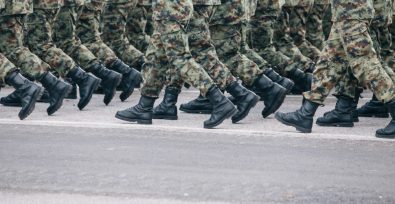The ongoing conflict in Ethiopia is exacerbating conditions for those who have been forcibly conscripted and those who evade conscription in Eritrea, according to a report submitted to the U.N. Human Rights Council on March 4.
The impact of forced conscription
Eritrea’s national service program is “akin to forced labor,” according to U.N. special rapporteur Mohamed Abdelsalam Babiker.
In the report, quoted by Voice of America, Babiker writes:
“Conditions for conscripts are extremely harsh, and sexual harassment, severe punishments and inhuman or degrading treatment are common. The program also has severe impacts on the rights to education and to the decent work of thousands of Eritreans, as well as on their families who cannot survive on the meager pay received by conscripts.”
Thousands of young Eritreans flee their country each year to avoid being conscripted into these conditions.
The consequences of evading conscription
Eritreans who evade conscription are met with brutal oppression, along with political opponents, activists, and dissenting journalists.
The authorities are arbitrarily detaining, and in some cases torturing, thousands of Eritreans. Many have been held in prison since 1991 with no legal rights.
“Some have died over the years,” Babiker said. “The whereabouts of others remain unknown. I urge this Council to extend the maximum possible pressure on the Eritrean authorities to release all prisoners of conscience. A comprehensive reform of the justice sector is also urgently needed to re-establish the foundations of the rule of law.”
The response of the Eritrean government to allegations
Ambassador Gerahtu Tesfamicael in Eritrea’s Ministry of Foreign Affairs says this report makes unsubstantiated allegations and fails to document the progress the government is making with regard to human rights. He denies the systematic violation of human rights in the country and argues that the U.N. Human Rights Council is targeting Eritrea due to political motivations.
The Eritrean government justifies its indefinite compulsory national service as a necessary response to the threat from the Tigray People’s Liberation Front, a rebel group from the Tigray region of Ethiopia, which shares a border with Eritrea. The group has been engaged in conflict with the Ethiopian government since late 2020.
Call for divestment from Eritrea
Freedom United condemns the use of forced conscription in Eritrea, as well as the abuse inflicted on draft evaders and conscripts alike.
We’re mobilizing our community to call on foreign actors to divest immediately from Eritrea and to publicly declare their opposition to these harmful practices. To ensure worker welfare, we’re also calling on all parties to compensate workers upon divestment.
Will you call on corporations to stop being complicit in the forced conscription of thousands of Eritreans? Sign the petition today.







Freedom United is interested in hearing from our community and welcomes relevant, informed comments, advice, and insights that advance the conversation around our campaigns and advocacy. We value inclusivity and respect within our community. To be approved, your comments should be civil.